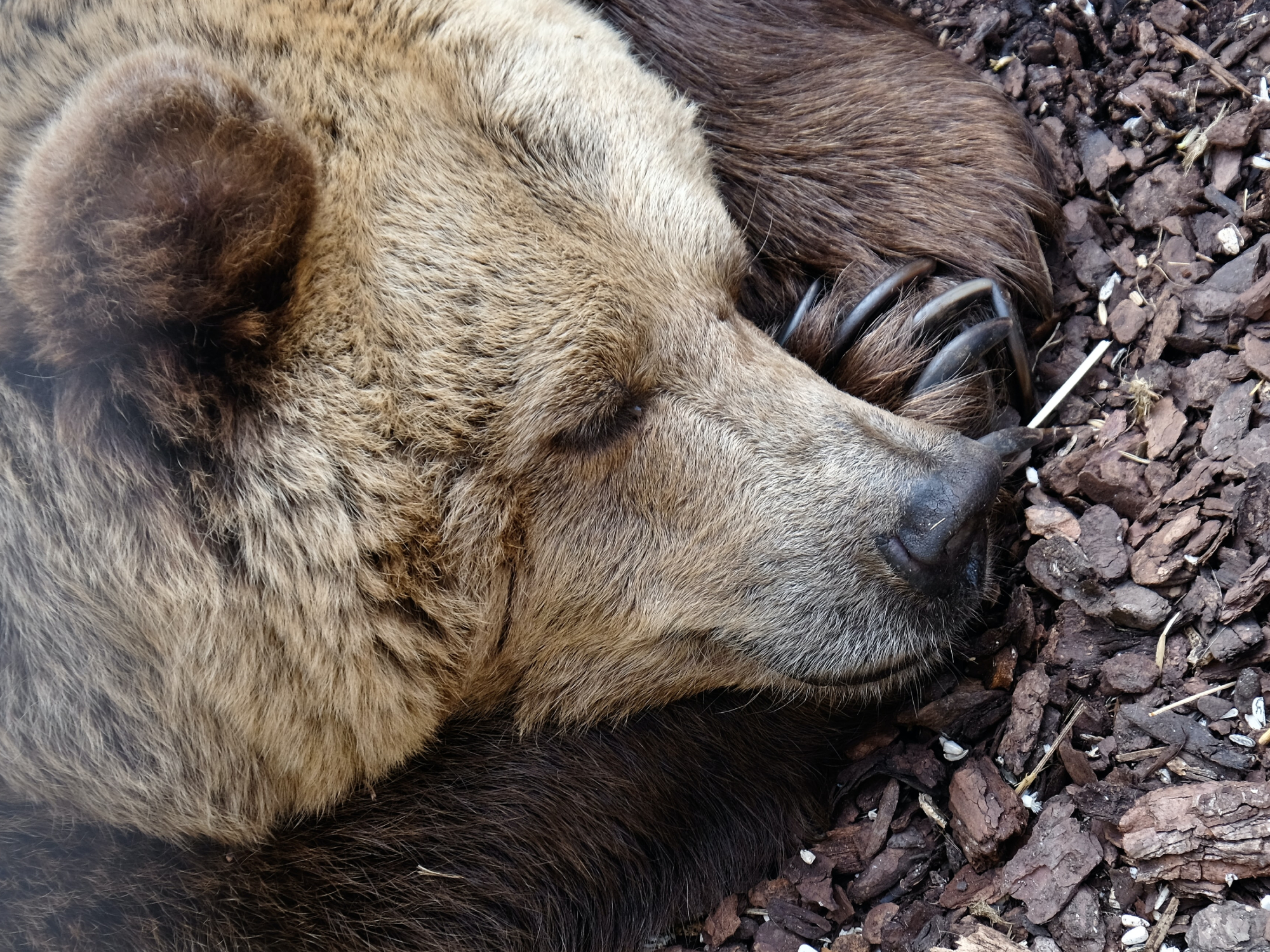

As the weather turns cooler, many of us are thinking ahead to the long winter months we’ll spend bundled up indoors to avoid the chill. Bears are no different. With hibernation approaching, many are on the prowl for calorie-rich foods that can help them build up fat and energy for a long winter’s snooze. Some bears are so good at bulking up that they’ve even become minor internet celebrities.
Many folks see nothing wrong with tossing sandwich crusts to a squirrel or feeding ducks at the park. But human food can quickly cross the line between a one-time treat and a wildlife magnet, especially when it comes to hungry bears. Even if you don’t live in bear territory, you may still be at risk of attracting these predators with unsecured garbage. Bears have been known to wander through residential areas in search of an easy meal—and if one finds an accessible source of tasty scraps on your property, it’s likely to return for seconds. This means it’s vital to keep your kitchen trash from becoming a bear’s treasure by securing it properly.
Keep your garbage indoors
The best way to keep bears out of your trash is to store it indoors until pickup day. This could mean keeping it in your garage, shed, or another sturdy structure with a locking door. The Colorado Parks and Wildlife Department warns that “because the food reward is so great, bears are willing to work hard to get at trash and garbage, and return often in hopes of finding more.” Bears can’t pick locks (yet) but they can undo simple latches in pursuit of delicious garbage.
Simply hiding your cans from sight won’t work: bears find human food by its smell, and have been known to demolish simple structures in order to reach it. That’s why having no trash outdoors at all is the safest option. You can also reduce outdoor food odors by washing out all containers before throwing them away and keeping edible garbage inside until trash day.
Pro tip: If your indoor garbage can doesn’t hide the smell of decaying trash, try tossing your food waste into a small bag in your freezer. The scraps will freeze solid and won’t decay. Then simply throw the whole frozen bag in your outdoor garbage right before trash pickup.
Use reinforced trash cans
Some specialty trash cans are designed to be bear-proof, or at least bear-resistant. However, depending on where you live, your trash pickup service may not support the use of these cans. If you need to keep your trash cans outside and can’t use bear-proof ones, consider strengthening the ones you already have. You can do this by adding locking mechanisms to their lids, securing them upright to trees or fences, or reinforcing them with metal bars to keep them from crumpling under a bear’s body weight. These modifications don’t have to be expensive—most of them only require a few tools and supplies from your local hardware store.
[Related: Simple tips for getting black bears to leave you alone]
Build a protective structure
Another way to keep bears out of your trash is to stash outdoor cans inside a sturdy protective structure designed for that purpose. The most secure structure for this purpose is your home itself, but creating an outdoor locker is a good option if you’re not able to store your trash indoors. You can buy bear-resistant trash can enclosures online or even build one yourself. Make sure the structure is enclosed on all sides, including on top and underneath the cans. Hungry bears can easily climb over or tunnel under ordinary wood, vinyl, or even chain link fences. Wash these protective structures, as well as the trash cans inside them, frequently with ammonia or bleach (BUT NOT BOTH!) in order to reduce lingering smells.
Consider bear deterrents
There are a number of other ways to deter bears from entering your property and noshing on your trash. These include setting up electric fences, training a guard animal like a dog to warn you of any intruding bears, rigging motion-sensing strobe lights to go off when they detect a bear, placing scarecrows around your property, and many more. But while these methods may work in the short term, bears will eventually get used to most of them and learn to disregard them in the pursuit of food. Preventing trash-eating at its source—the trash—will almost always be easier and less expensive than these other creative bear-scare tactics.
Prevent repeat visitors
A bear sighting on your property can be a frightening experience, but it can also serve as a lesson on how you may be unwittingly attracting bears to your yard. If a bear gets into your trash, take a look at how it approached the challenge and fix any weaknesses in your waste disposal system. If you’re still having problems, contact your local Fish and Wildlife Department for advice specific to your area. Keeping bears out of the trash benefits both humans and bears alike by reducing human-bear conflicts, preventing bears from becoming dependent on human food, and ensuring that your neighborhood doesn’t become a hotspot for bear activity.